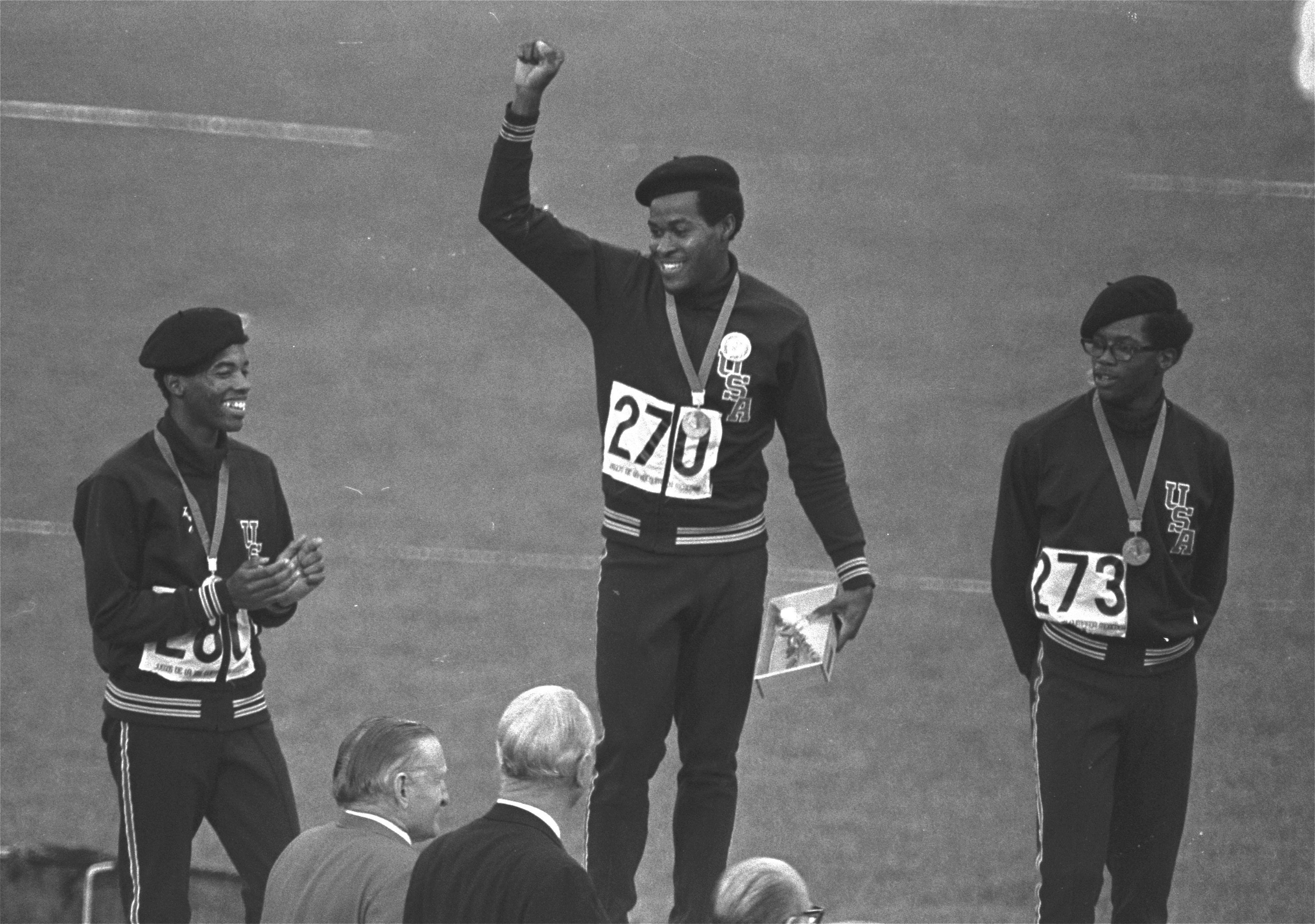Record-setting sprinter, '68 Olympic activist Lee Evans dies
Lee Evans, the record-setting sprinter who wore a black beret in a sign of protest at the 1968 Olympics, has died

Your support helps us to tell the story
From reproductive rights to climate change to Big Tech, The Independent is on the ground when the story is developing. Whether it's investigating the financials of Elon Musk's pro-Trump PAC or producing our latest documentary, 'The A Word', which shines a light on the American women fighting for reproductive rights, we know how important it is to parse out the facts from the messaging.
At such a critical moment in US history, we need reporters on the ground. Your donation allows us to keep sending journalists to speak to both sides of the story.
The Independent is trusted by Americans across the entire political spectrum. And unlike many other quality news outlets, we choose not to lock Americans out of our reporting and analysis with paywalls. We believe quality journalism should be available to everyone, paid for by those who can afford it.
Your support makes all the difference.Lee Evans the record-setting sprinter who wore a black beret in a sign of protest at the 1968 Olympics then went onto a life of humanitarian work in support of social justice, died Wednesday. He was 74.
USA Track and Field confirmed Evans' death. The San Jose Mercury News reported that Evans' family had started a fundraiser in hopes of bringing him back to the U.S. from Nigeria where he coached track, to receive medical care after he suffered a stroke last week.
Evans became the first man to crack 44 seconds in the 400 meters, winning the gold medal at the Mexico City Games in 43.86. His victory came shortly after his teammates, Tommie Smith and John Carlos were sent home from the Olympics for raising their fists on the medals stand.
In later interviews, Evans said an official warned him not do anything similar. He took a different approach, wearing a black beret to show support for the Black Panther Party and other civil rights organizations.
“Lee Evans was one of the greatest athletes and social justice advocates in an era that produced a generation of such courageous, committed, and contributing athlete-activists," said Harry Edwards, the architect of the Olympic Project for Human Rights, of which Evans was a key member.
Like Smith and Carlos, Evans was a college star on the San Jose State “Speed City” teams. And like his teammates, he earned his platform at the Mexico City Games with an indelible performance on the track. After running his 43.86 in the 400, Evans anchored the U.S. 1,600 relay team to a world record of 2:56.16. The 400 record stood until 1988. The relay record stood until 1992.
Evans also won five U.S. titles at 400 meters and is a member of both the USATF and U.S. Olympic halls of fame. Many remember him just as much for his post-retirement career as for his achievements on the track.
He coached at Washington, San Jose State and South Alabama, and was director of athletics for the Special Olympics San Jose State, in its obituary on Evans, said he coached national teams for Qatar, Cameroon and Nigeria. Evans was in Nigeria coaching high school track when he suffered the stroke last week.
The school said Evans received the 1991 Nelson Mandela Award for those who "stood for the values of equality and friendship and respect of human rights, against apartheid and any form of racism.” He also worked on the Madagascar Project, which helped provide fresh water and self-sustaining farming techniques.